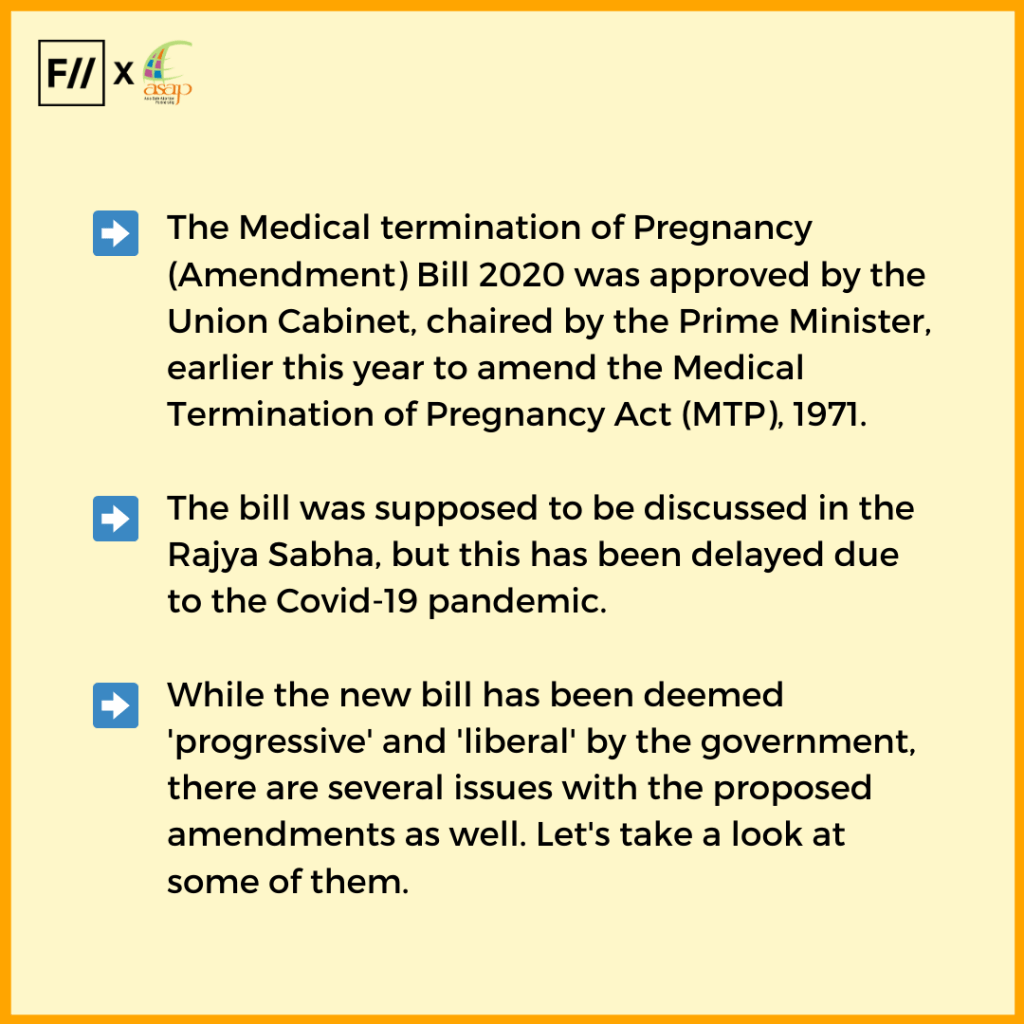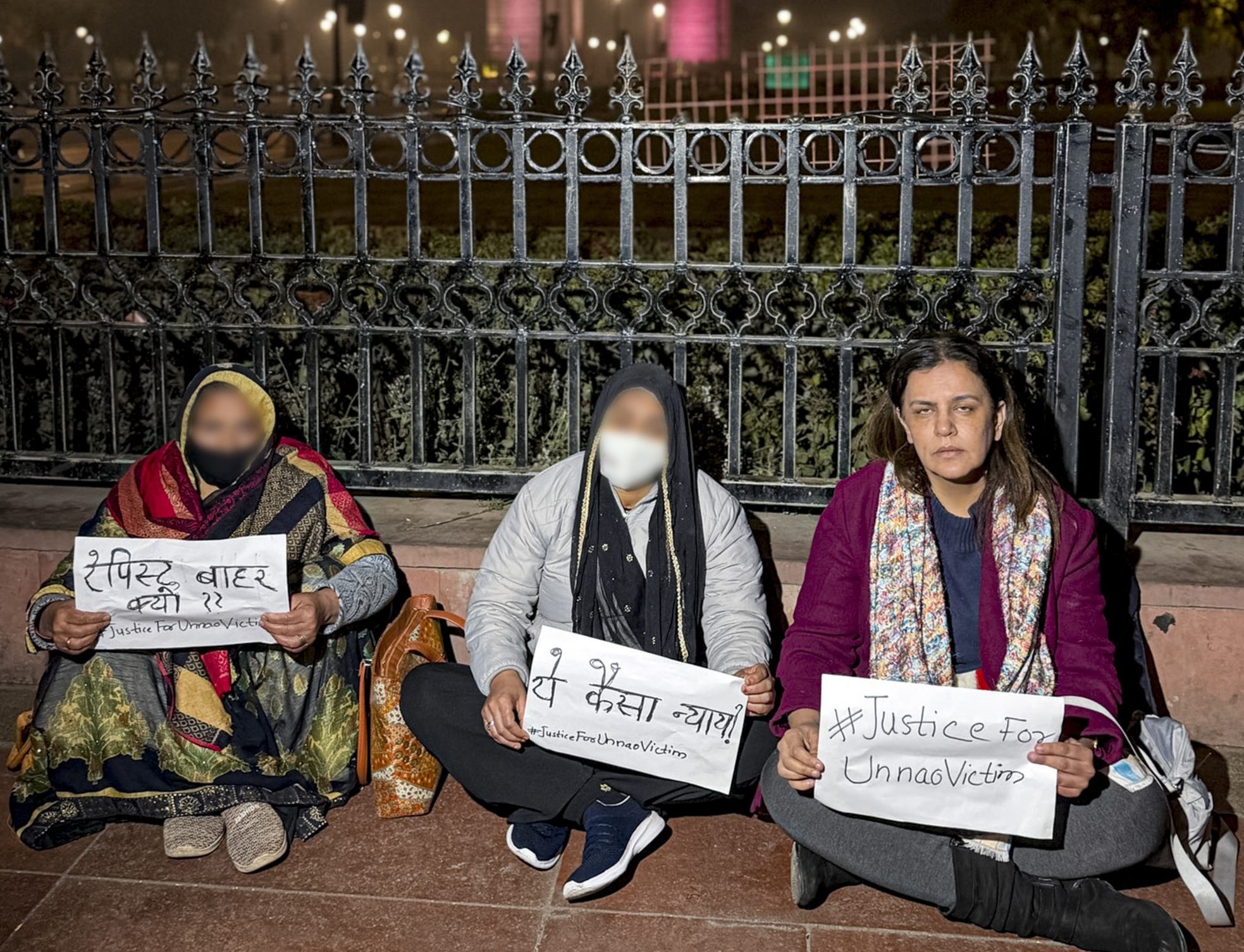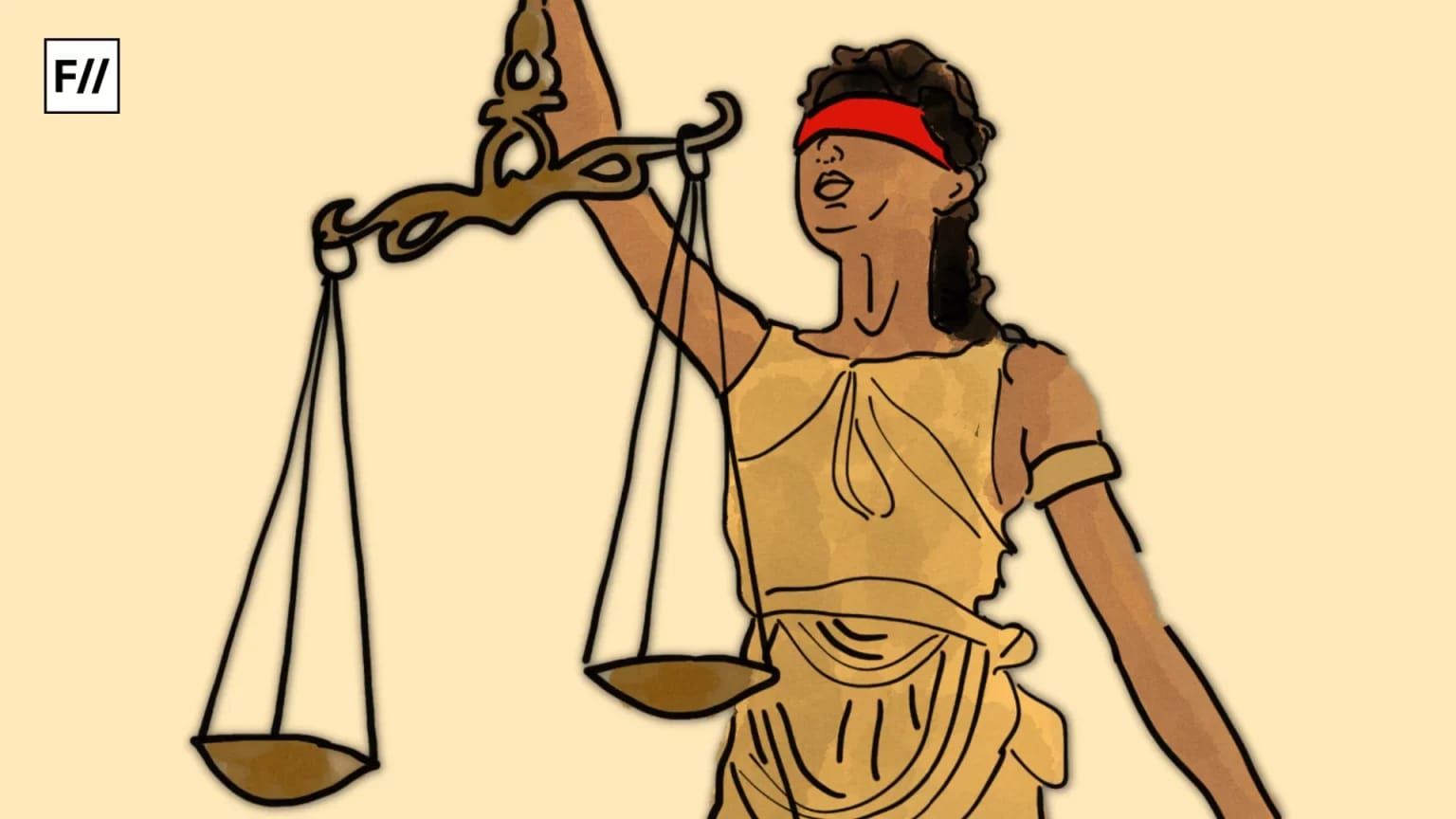The Medical termination of Pregnancy (Amendment) Bill 2020 was approved by the Union Cabinet, chaired by the Prime Minister, earlier this year to amend the Medical Termination of Pregnancy Act (MTP), 1971. The bill was supposed to be discussed in the Rajya Sabha, but this has been delayed due to the Covid-19 pandemic. While the new bill has been deemed ‘progressive’ and ‘liberal’ by the government, there are several issues with the proposed amendments as well. On International Safe Abortion Day, FII, in collaboration with Asia Safe Abortion Partnership, takes a look at some of them.

The proposed amendment: The new bill aims to extend the period of allowed termination of pregnancy upto 20-24 weeks. To terminate until 20 weeks, approval from one registered practitioner would be required, and between 20-24 weeks, approval of two medical practitioners would be needed.
The issue with it: The new bill doesn’t focus on the rights of the person who doesn’t want to continue the pregnancy. A person still won’t have the absolute right to terminate a pregnancy if they want to.

The proposed amendment: Beyond 24 weeks, permission from a medical board would be needed. The medical board supervising the termination of the pregnancy beyond 24 weeks should include a gynaecologist, a paediatrician and a radiologist.
The issue with it: There’s no clarity as to who would ensure access to the medical board and no mention of financial support that might be needed to contact the medical board. Also, how can the presence of so many specialists be assured in regions where access to healthcare continues to be an issue?

Also read: What Would Enhancing Upper Gestation Limit For Abortion To 24 Weeks Do?
The proposed amendment: The upper limit of termination of pregnancy to 20-24 weeks has been extended for ‘special categories of women’ which will include ‘vulnerable women’ such as survivors of rape and incest, women with disabilities, minors etc.
The issue with it: This doesn’t take into account the experiences of other marginalised people such as migrant workers, displaced persons, trans and non-binary people, people who experience intimate partner violence, among others. Lack of access to timely diagnosis and information can also be factors for seeking termination of pregnancy beyond 24 weeks.

The proposed amendment: The new bill includes a privacy clause which states that revealing the name and other details of a woman wanting to terminate a pregnancy is punishable, and may only be revealed to a person authorised by law.
The issue with it: The original bill had taken special care to protect the right to privacy of the person seeking an abortion. The wording of the new bill indicates that the details can be shared with a person ‘authorised by law’. This could compromise the confidentiality of the individual.

The proposed amendment: The MTP Act as well as the new bill allow ‘pregnant women’ to terminate a pregnancy if they wish to.
The issue with it: The MTP Act as well as the new bill reinforce the gender-binary and fail to extend the same rights to trans, intersex, and non-binary people. Instead of ‘pregnant woman’, the bill must include the term ‘pregnant person’.

Also read: Abortion During The Pandemic: Whose Crime Is It Anyway?
The MTP Act is needed in the first place only because the Indian Penal Code (IPC) still criminalizes abortion, hence the usage of the phrase ‘medical termination of pregnancy’ and not abortion. Many sections in the MTP Act begin with ‘Notwithstanding anything contained in the Indian Penal Code..’- as a means to protect doctors for conducting abortions. Instead of a doctor-centric law, like the current MTP Act, a new law that acknowledges the rights and autonomy of a pregnant person is needed.

Access to safe abortion is a fundamental human right. What is needed is a comprehensive new law which ensures that no person is forced to get an unsafe abortion or continue an unwanted pregnancy. More policies and laws that centre the sexual and reproductive rights of people are needed. This includes and is not limited to access to comprehensive sexuality education, access to contraception and safe abortion.

Hence the new bill urgently needs to adopt a rights-based approach towards abortion and reproductive health.
About the author(s)
Feminism In India is an award-winning digital intersectional feminist media organisation to learn, educate and develop a feminist sensibility and unravel the F-word among the youth in India.




